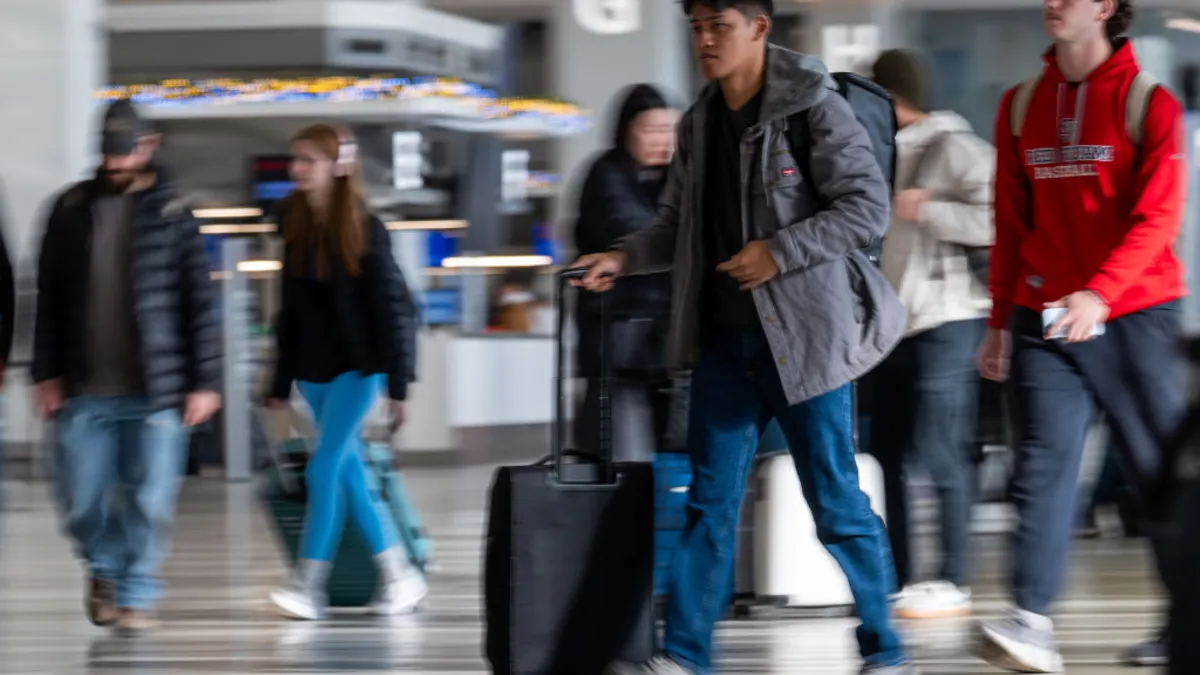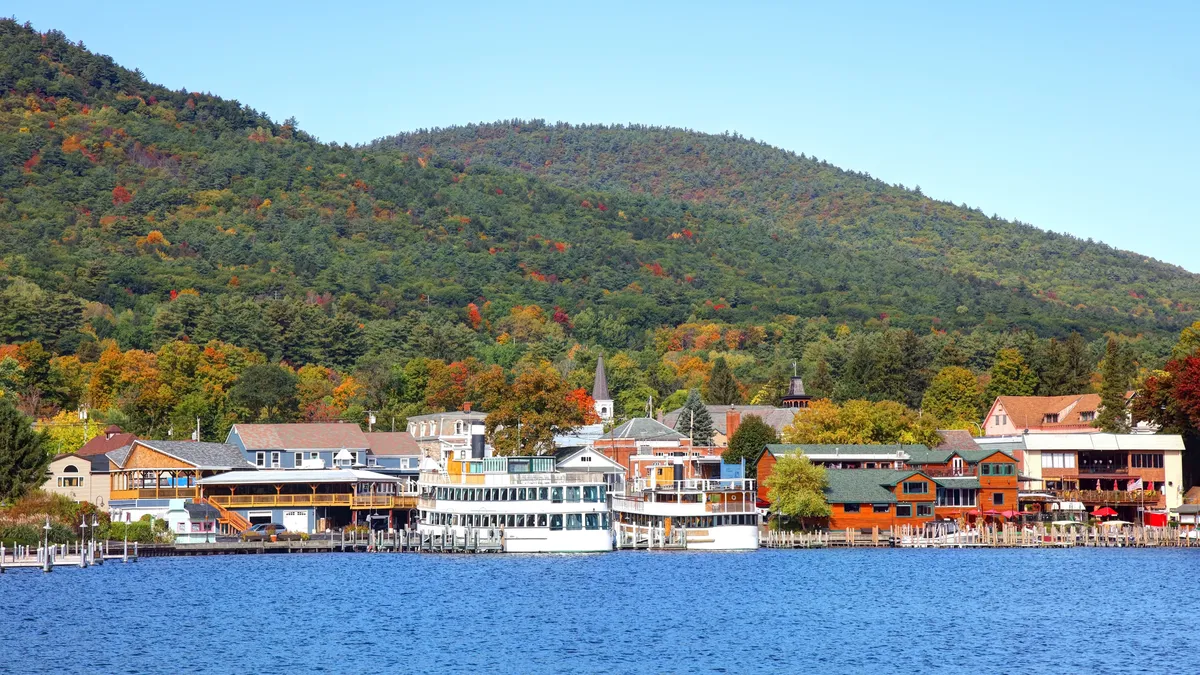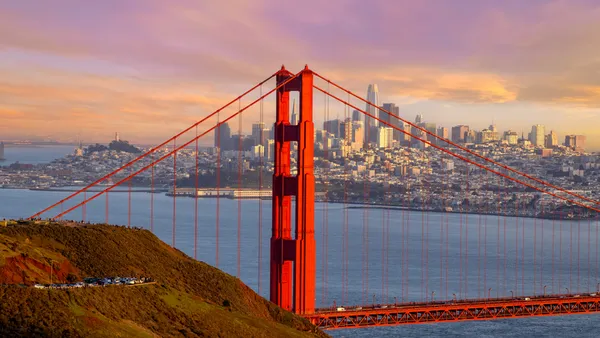Though affordability remains the biggest barrier to travel, Americans are still making leisure travel a priority, according to Deloitte’s 2025 travel industry outlook.
Post-pandemic reprioritization of travel will continue this year, with further travel demand boosted by a rise in remote workers and an increasing share of Americans who said their financial situation has improved since last year.
Meanwhile, travelers are increasingly comfortable using artificial intelligence-powered tools to plan their trips, Deloitte’s research shows. And hotels that embrace technology can better market ancillary products and services to would-be guests, according to the firm.
Hotel Dive spoke to Eileen Crowley, who leads Deloitte’s U.S. Audit and Assurance Transportation, Hospitality and Services practice, about the firm’s 2025 outlook and how hotels can take advantage of the travel demand.
Travelers’ finances
“What we've seen over the last few years, and what seems to be sticking, is that folks are prioritizing travel as they think about their discretionary spend dollars,” Crowley told Hotel Dive.
And while affordability is still an issue — one in five Americans said they opted out of a trip they wanted to take in 2024 due to the high cost of flights or lodging, according to Deloitte — more than a third said they had not made travel adjustments due to prices.
Meanwhile, the share of Americans who said their financial situation has improved from last year rose to 37% (as compared to 31% who said so in the year-ago period).
Technology changes
At the same time, American travelers are growing more comfortable with AI-powered planning tools, with more than four in 10 saying they booked accommodations recommended by the tools. Some 51% said they used the tools to research accommodation options but did not book the recommendations, according to Deloitte.
To take advantage of strong demand, travel providers including hotels should prioritize smart segmentation and personalization when selling additional experiences and amenities to guests, the outlook says.
According to Crowley, travelers are also increasingly responding to opportunities to buy multiple travel products at once. Some 22% of travelers said they are “very interested” in hotel booking through an airline, for instance, according to the report.
When it comes to additional amenities, some 26% of respondents said a drink at the bar would be the most appealing free amenity to them in a hypothetical hotel stay. That choice was followed by airport transfer (23%) and snacks on arrival (21%).
Shifting political environment
Going into 2025, hotels may also need to contend with changes brought on by the new presidential administration, though “it’s probably too early to tell” how exactly the changes will impact travel, Crowley said.
“If you think about the potential impacts of what [the administration] could do, how that would impact travel would be around all those things that would impact consumers discretionary income,” she added. “That’s where the trickle-in effect will be for the travel industry.”
Earlier this week, Hilton CEO Chris Nassetta expressed a positive outlook toward Washington’s impact on the travel industry this year.










